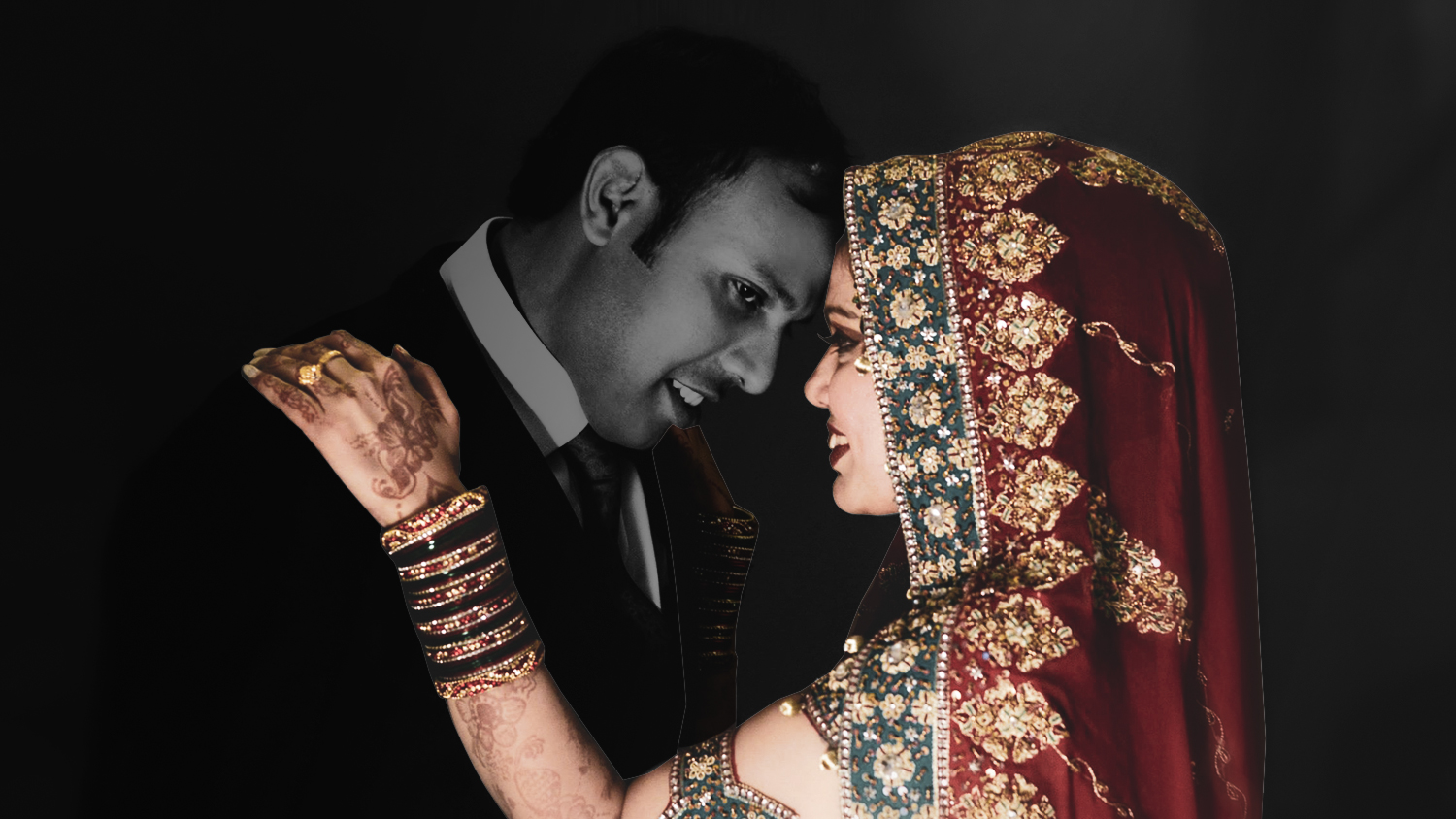Two years ago this Valentine’s Day, I arrived in the United States after fleeing persecution in Pakistan. When I describe my journey, I often tell people it was like a journey from hell to heaven. I really do love it here.
But the holiday where Americans around me celebrate romantic love is bittersweet. Although I have been married to my husband for seven years, we have only been in the same country for one Valentine’s Day. He has not yet made his journey “from hell to heaven.”
Shortly after we married in Pakistan—a marriage arranged by my parents, who were thrilled that he was Christian, well educated, and taller than I am—my husband started a website to tell the stories of persecuted Pakistani Christians. Soon after the website launched, we were in danger.
We set out to flee, but my husband was captured by extremists. I continued with my plan to escape Pakistan, thinking my husband had been killed. I knelt in church every day praying for his safety, even though the evidence told me it was futile.
Only later, after I had left the country, did I learn that he had been tortured and left for dead. A passerby found him and saved his life, but the opportunity for him to come with me had passed, and he had to wait for another chance. By that time, my application for refuge in the US was already in process, and our separation was in the hands of systems larger than us. We never wanted to be apart, but now we had little choice.
Our marriage has crossed continents and oceans, and even though many people think I’m crazy for staying in it, I have never considered getting out. Distance doesn’t matter if the roots are strong. I can bear the pain and uncertainty of physical separation far better than the pain of emotional and spiritual separation. Ultimately, this is God’s marriage. God has been faithful to it, and so will I. He answered my prayers for my husband’s life at the hands of extremists. He will answer my prayers to be with him again.
My husband has now made it from Pakistan to Sri Lanka. When we talk over WhatsApp and Skype, it’s not difficult to remember how our arranged marriage quickly became a true love. He’s a romantic, always sending sweet messages, even cards and letters. He’s the only one to remember my birthday. He is 12 hours ahead of where I live in Spokane, Washington, so he reaches the special days first—our anniversary, my birthday, and, yes, Valentine’s Day. Last year for our anniversary, December 15, he called me when it was midnight in Sri Lanka but only noon on the 14th where I was. He said he wanted to be the first to wish me happy anniversary, at the earliest moment possible.
One reason my mom arranged for me to marry my husband was that he already loved me. We met at the hospital where I was a nurse and he was visiting one of my patients. We became friends, and he wanted me to go out with him on dates, but I said no. I didn’t want marriage at the time, with him or anyone, so I put him off.
Then he got our parents involved. My mom liked that kind of persistence; she thought it showed that he wouldn’t take me for granted. Even then I wasn’t totally sure about him, but my parents have a long and happy marriage so I took her advice. Now I believe God used my trust in my parents’ wisdom to give me a gift I didn’t know I wanted—my marriage.
I believe God brought my husband and me together, and I believe it was to bless us, as he promises in Scripture (Jer. 29:11). But I cannot ignore the mystery of his timing. I know God will work. I just don’t know how—or when.
Sri Lanka is an in-between place for my husband. It’s not our home in Pakistan, and it’s not the safety of my new home in the United States. It was my in-between place too.
Four years I waited in Sri Lanka for my refugee application to be approved. I spent every day just surviving. In 2013, shortly after I arrived, the Sri Lankan government began deporting Pakistani refugees. This tension has since eased, but back then we were literally being chased in the streets, rounded up, and sent back to Pakistan. We were helpless, unable to work, vulnerable in every way. I spent most of my time hiding in churches and was never caught, thanks to their kindness.
In that time, Jesus became the single hand holding mine. I came to know him in a closer way than I ever had before. Growing up, he was God, he was powerful, but he was not always in my thoughts. Sheltering in those churches, afraid for my life and depending on his people, Jesus and I became like best friends.
When I arrived in Spokane, some people from World Relief met me at the airport. From that moment I have had a sense of family in the United States. I have a friend who is like the little sister I never had. Now that I am working, I know more people in my community.
My friends in the United States are amazed—not always in a good way—when I explain my marriage. Arranged marriages are hard enough for Americans to understand, but that I would remain committed to the marriage when we have been apart for seven years is so different from anything they can imagine.
I do have an arranged marriage, in the classic Pakistani way. But more importantly, my marriage was arranged by God. He brought us together and is keeping us together despite persecution, bureaucratic processes, and even the rumors and doubts of separation.
Some people I know with connections in Pakistan try to tell me my husband has surely been unfaithful. They tell me they have heard things and that even if those particular rumors are not true, no man would ever deprive himself of woman’s company for so long.
But my husband tells me he has been faithful, as I have, and I believe him. It would destroy my mind to be constantly suspicious of him from across the ocean. If he ever lied to me, that would be between him and God. For seven years, the only thing I have been able to control is whether I am faithful to him, to God, and to our marriage.
My husband has never given me reason to doubt. He has always put loving me ahead of himself and ahead of cultural norms and entitlements. While in traditional Pakistani households the women are subservient to the men, he let me be myself, to have my opinions. My mom would have called me “domineering” if he’d ever complained to her, but he loved my spirit. My freedom in our home was our little secret. He didn’t expect me to wait on him hand and foot while he lounged at the table or to jump up to attend to him if he wanted seconds. The whole reason we are apart is that he was thinking of my safety first, not keeping me around to serve him.
Now, as a refugee, I have the chance to show that love back to him. Our marriage isn’t about meeting all my needs; that’s obviously not possible. It’s about trusting each other and loving each other however we can. Even from across the world he brings out the best in me, and I don’t know how.
I can be faithful, and I can keep hoping for the day we will be together. Those will be happy days. I just don’t know when they will come.
Bekah McNeel is immigrant communities editor at Christianity Today.









